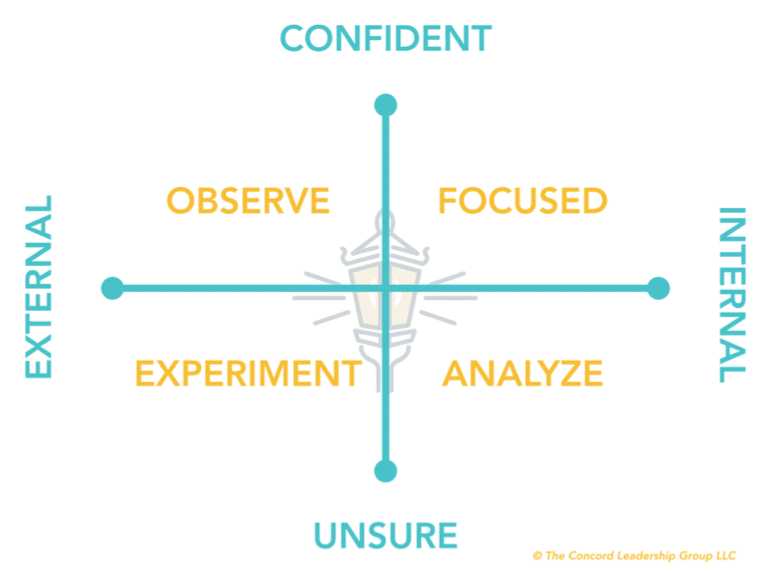The Leader's Journey
But who grows the leaders? Who helps us become the leader we are created to be, in the way we are created to do it?
The Leadership Journey
Usually, we grow proficient enough in a skill set that we are promoted to leadership. This could be at work or in a volunteer capacity. Filled with the pride in being recognized or the terror of being singled out, we start as leaders by doing what we’ve observed other leaders doing.

Filled with some level of confidence from the fact that others say we can do it, we try mimicking what we’ve seen work. We get even more skilled at identifying more leaders to copy. And we see things in leaders we realize make them unsafe to copy. No matter how much success we experience or how little, we are constantly dogged by the feeling that we don’t really have what it takes.
Commonly called “imposter syndrome,” we are worried that people will “find out” we don’t really know what we’re doing. Or we haven’t got what it takes. So as we desperately repeat to ourselves the old phrase “fake it ‘til you make it,” we start looking for help. We read all the books we can. Watch all the webinars, listen to as many podcasts as possible. And we learn how to educate ourselves in our own style. Some of us are readers. Some absorb data better by hearing it. Others find they learn best with a small group of others.
Many leaders stay in these stages of leadership. Looking to external sources of other leaders and the books and programs promising leadership success, they experience varying levels of confidence in what they’re abilities and results. Always dogged by the feeling they’re making it up as they go, they work hard to suppress the sense that they are faking and fumbling. Over work and increasing learning try to crowd out the discomfort that is always just below the surface.
But some leaders press into this discomfort. Tentatively at first but with increasing awareness, they begin to analyze what they’ve learned from watching people and studying programs. Not all the people they esteemed end up well. Not all the programs promising amazing leadership transformations live up to their marketing hype. These leaders start sorting through it all in relation to how they respond. They see the mentor they tried to copy get completely burned out and his family crumble and realize they have a different definition of success. They read books like David Allen’s Getting Things Done and, while sure all that list making must work for some people, realize it’s not how they operate. But they also realize they’ve learned something, like Allen’s relentless reminder to list an next step action item with every single item on a list.
These leaders feel like they’re charting their own path. In many ways they are. Their leadership development journey is similar to other leaders, but their path is their own. No one else has walked that path before.
Leaders brave enough to walk on this path combine the power of all they’ve learned from others and all they’ve discovered about themselves and grow into the focused leaders they thought they were going to be when they were first given a leadership title. And they grow other leaders through the development process.
The 4 Quadrants of Leadership
This journey can be described as four quadrants of leadership.
- Quadrant 1 leaders are fairly confident and seek their cues from others. This is the “Observe” stage.
- Quadrant 2 leaders are less confident but still look outside themselves for answers. This is the “Experiment” stage.
- Quadrant 3 leaders harness their lack of confidence to begin looking for answers inside themselves. This is the “Analyze” stage.
- And Quadrant 4 learners are humbly confident in their ability and are free to lead with grace and flexibility as well as bring others along the path of the four quadrants.
Every leader’s development journey is an invitation to explore each quadrant. But most don’t have a guide. For a longer explanation of the 4 Quadrants of Leadership go to https://concordleadershipgroup.com/4-quadrants-of-leadership/.
If you’d like a worksheet with questions to help you maximize your effectiveness, or your team’s effectiviness, in each quadrant, go to https://concordleadershipgroup.com/focusedleader/.
